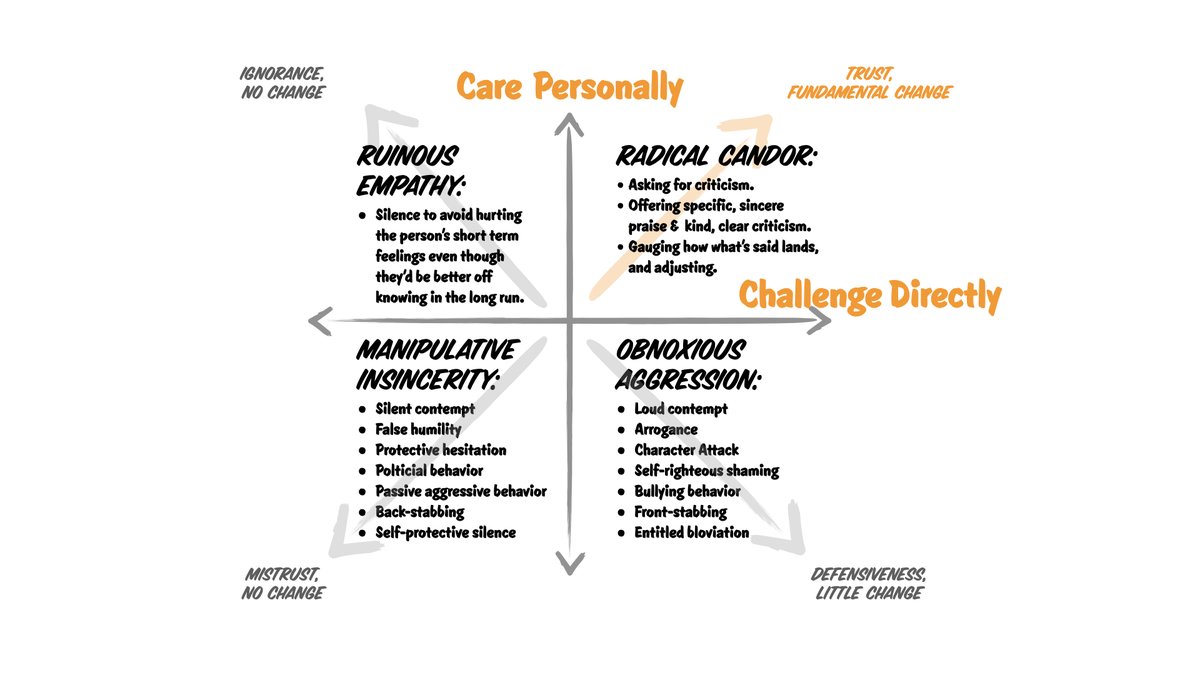Ruinous Empathy
By all accounts the Kim Scott book ‘Radical Cando(u)r’ has become a bible in Silicon Valley and tech circles. And rightly so, as the need for honest and open feedback cannot be underestimated.
For those not familiar, the book’s deceptively simple 2x2 matrix describes 4 behavioural patterns often seen in workplaces where feedback (or lack thereof) occurs:
- Radical candour (inhabiting the capitalistic sweet spot of ‘up and to the right’) which leads to fundamental change;
- Obnoxious aggression, leading to defensiveness due to feedback delivery or communication style;
- Manipulative insincerity, aka mistrust and no change; and finally
- Ruinous empathy, aka no change by way of ignorance or lack of feedback whatsoever

Being radically candid is the ideal. But it’s hard.
At Clearleft (where we started to explore peer feedback) we were visited by the esteemed Julia Whitney, who provided excellent training around giving and receiving feedback.
Giving and getting feedback is a trait that comes more naturally to some than others. Kim Scott’s principles, backed up by Julia, leans into the approach that by ‘caring personally’ you’re able to ‘challenge directly’. By providing feedback directly helps us understand where we can improve.
Radical candour itself is an example of an open feedback loop. It’s a concept Matthew Syed works with in ‘Black Box thinking’, which I then adapted and applied to our own digital industry by way of design critique and retrospectives, amongst others as they provide the appropriate constructs and forums for feedback.
The worst of the lot
Good feedback is predicated on the idea that feedback is being provided. That’s why the villain of the group is ruinous empathy.
Having experienced this first hand — both directly and indirectly — I’ve vowed never to make the same mistakes again. By failing to provide direct, challenging (but caring) and, crucially, timely feedback , I’ve seen people flounder, working on the presumption that they’re doing a great job when instead they needed feedback to course-correct and improve.
This video on Ruinous Empathy by Kim Scott herself perfectly encapsulates both the scenario and outcome that I’ve witnessed first-hand. It still haunts me.
If you’ve got direct reports, colleagues or peers who need a nudge, don’t delay, sit on it or look the other way. The best outcomes will always start with ‘Can I give you some feedback’.
January 11th, 2022